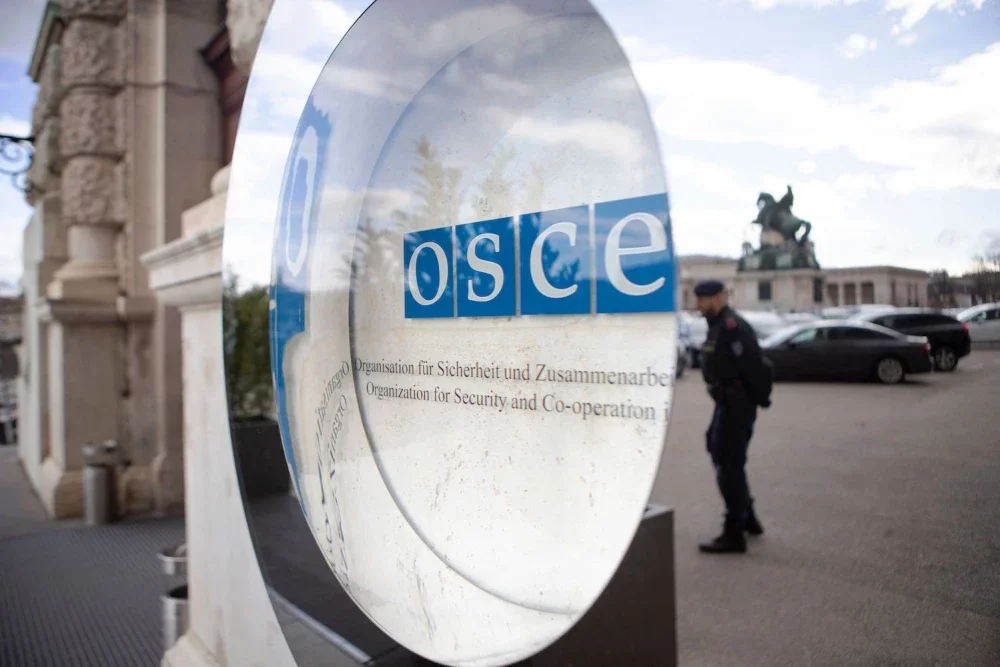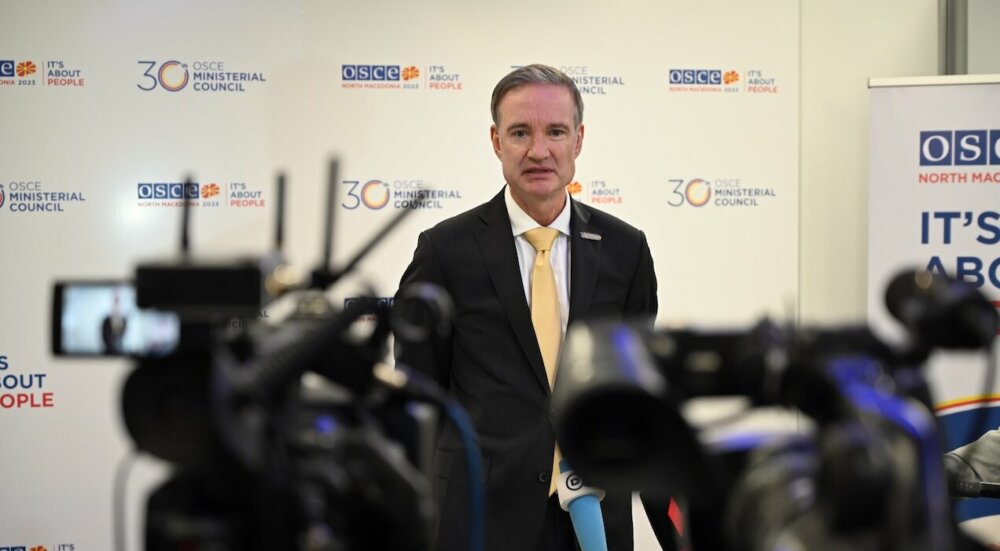Tymoshenko case casts a shadow over Ukraine’s OSCE Chairmanship
Ukraine, the country currently holding the OSCE Chairmanship, has come under increasing pressure mainly by the European Union and the European Court of Human Rights (ECHR) in Strasburg due to concerns over the independence of its judiciary and cases of selective justice. More specifically, the ECHR ruled on 30 April 2013 that the pre-trial detention of opposition leader Yulia Tymoshenko in 2011 had been “arbitrary; that the lawfulness of her detention had not been properly reviewed; and, that she had no possibility to seek compensation for her unlawful deprivation of liberty.”[1] The ECHR found that Tymoshenko’s pre-trial detention had been in breach of Article 5 (right to liberty and security) of the European Convention on Human Rights. The Court has yet to rule on the lawfulness of a seven-year sentence, pronounced in October 2011, which found Tymoshenko guilty of abuse of office while serving as prime minister in 2009, especially in relation to her role in a gas deal with Russia that allegedly cost Ukraine billions of dollars annually.
Voices have become louder over the last years by the EU and other western states that Tymoshenko’s trial and sentence may have been politically motivated, helping Ukrainian president Yanukovich to remove a political rival. In this context, the ECHR ruling is of particular importance and seems to have confirmed some of the EU’s concerns. Therefore, Brussels has decided to freeze the signing of an Association Agreement as well as of a Deep and Comprehensive Free Trade Agreement with Ukraine; the signing will only take place “once the political conditions are met.”[2]
In this context, Ireland (on behalf of the EU) drew the attention of the OSCE Permanent Council on 2 May to the joint statement of 30 April by the EU High Representative Catherine Ashton and Commissioner Stefan Füle. In this statement, the EU called on Ukraine to “reconsider thoroughly the situation of Ms. Tymoshenko” and encouraged Ukraine to “work closely with the European Parliament’s monitoring mission to Ukraine headed by former Presidents Cox and Kwaśniewski with a view to redressing the effects of the current situation and removing outstanding concerns regarding selective justice.” The EU also urged Ukraine to “take urgent steps to remedy the systemic procedural shortcomings identified in this ruling, as part of a comprehensive reform of the judiciary, to prevent recurrence of arbitrary decisions and allay concerns over the selective use of justice.” A number of non-EU member states aligned themselves with the statement delivered at the Permanent Council, notably Croatia, the former Yugoslav Republic of Macedonia, Montenegro, Iceland, Serbia, Bosnia and Herzegovina, Liechtenstein and Norway, thus giving the text additional political weight.
However, no other delegation took up the issue at the OSCE Permanent Council on 2 May. This is surprising given the fact that Ukraine is currently holding the OSCE Chairmanship and is therefore in an internationally exposed position. OSCE participating States should be conscious of this fact and should not shy away from criticizing the country that is currently representing the OSCE and the values and principles it stands for. It is not enough to leave the issue of Ukraine’s human rights record to the European Union and the ECHR. It should be recalled in this context that participating States expressed considerable criticism over the inclusion of the late Jörg Haider’s far-right Freedom Party in the coalition government of Austria in 2000, the year that Austria also held the OSCE Chairmanship. Hence, this practice is not new and is indeed necessary. Admittedly, a number of states have issued statements through their respective Foreign Ministries on the ECHR ruling, such as Canada and the US; however they have yet to do so in the context of the OSCE. For example, Canada called on the Ukrainian government “to strengthen judicial independence” and condemned “in the strongest terms the unlawful and arbitrary pre-trial detention of Yulia Tymoshenko.”[3] Similarly, the US State Department took up the issue on 30 April at its daily press briefing, reiterating its call that “Mrs. Tymoshenko be released and the practice of selective prosecution in Ukraine end.”[4] However, the issue should definitely be debated and taken up again in the OSCE Permanent Council and Ukraine should explain to its international partners how it will ensure the independence of its judiciary in the future and how it will put an end to the practice of selective justice and prosecution. The OSCE has ample ways to support Ukraine’s reform of the judiciary, for example through ODIHR’S Rule of Law Unit or the OSCE Project Coordinator in Ukraine.
An independent judiciary is among the cornerstones of any democracy. Ukraine has committed itself to the independence of the judiciary within the UN and the Council of Europe and to the principle of rule of law in many key OSCE documents, notably in the 1990 OSCE Copenhagen Document. Therefore, OSCE participating States have to react and make sure that its Chairmanship leads by example in the implementation and fulfilment of its international commitments. If not, it should expect to be criticized by its peers – like any other participating State. The recent pardoning by Ukrainian president Yanukovych of former Interior Minister Yuriy Lutsenkto and former Environment Minister Heorhiy Filipchuk are important steps in the right direction but are not sufficient to cast away doubts about the independence of Ukraine’s judiciary, cases of selective justice and what appear to be politically motivated prosecutions. Ukraine should take the opportunity and address those concerns fully in order to strengthen the credibility of its Chairmanship.
[1] See press release (dated 30 April 2013) of the European Court of Human Rights, available at: http://hudoc.echr.coe.int/sites/fra-press/pages/search.aspx?i=003-4343134-5208270#{“itemid”:[“003-4343134-5208270”]}
[2] See EC press release (MEMO/13/282, dated 25 March 2013 ), available at: http://europa.eu/rapid/press-release_MEMO-13-282_en.htm
[3] See statement by Foreign Affairs Minister John Baird, dated 30 April 2013, available at: http://www.international.gc.ca/wet30-1/aff/news-communiques/2013/04/30a.aspx
[4] To read the full transcript of the US State Department press briefing on 30 April, go to: http://www.state.gov/r/pa/prs/dpb/2013/04/208639.htm



Comments
* Your email address will not be published